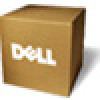Dell Broadcom NetXtreme Family of Adapters Broadcom NetXtreme II Network Adapt - Page 119
Appendix A: Event Log Messages, Windows System Event Log Messages
 |
View all Dell Broadcom NetXtreme Family of Adapters manuals
Add to My Manuals
Save this manual to your list of manuals |
Page 119 highlights
Broadcom Teaming Services: Broadcom NetXtreme II Network Adapter User Guide order frames. Adapter teaming load balancing does not work the same way as other storage load balancing mechanisms such as EMC PowerPath. Question: Is there any special configuration required in the tape backup software or hardware to work with adapter teaming? Answer: No special configuration is required in the tape software to work with teaming. Teaming is transparent to tape backup applications. Question: How do I know what driver I am currently using? Answer: In all operating systems, the most accurate method for checking the driver revision is to physically locate the driver file and check the properties. Question: Can SLB detect a switch failure in a Switch Fault Tolerance configuration? Answer: No. SLB can only detect the loss of link between the teamed port and its immediate link partner. SLB cannot detect link failures on other ports. Question: Where can I get the latest supported drivers? Answer: Go to Dell support at http://support.dell.com for driver package updates or support documents. Question: Why does my team lose connectivity for the first 30 to 50 seconds after the primary adapter is restored (fall-back after a failover)? Answer: During a fall-back event, link is restored causing Spanning Tree Protocol to configure the port for blocking until it determines that it can move to the forwarding state. You must enable Port Fast or Edge Port on the switch ports connected to the team to prevent the loss of communications caused by STP. Question: Where do I monitor real time statistics for an adapter team in a Windows server? Answer: Use the Broadcom Advanced Control Suite (BACS) to monitor general, IEEE 802.3 and custom counters. Question: What features are not supported on a multivendor team? Answer: TOE, VLAN tagging, and RSS are not supported on a multivendor team. Appendix A: Event Log Messages Windows System Event Log Messages Base Driver (Physical Adapter/Miniport) Intermediate Driver (Virtual Adapter/Team) Virtual Bus Driver (VBD) Windows System Event Log Messages The known base and intermediate Windows System Event Log status messages for the Broadcom NetXtreme II adapters are listed in Table 8 and Table 9. As a Broadcom adapter driver loads, Windows places a status code in the system event viewer. There may be up to two classes of entries for these event codes depending on whether both drivers are loaded (one set for the base or miniport driver and one set for the intermediate or teaming driver). Base Driver (Physical Adapter/Miniport) The base driver is identified by source L2ND. Table 8 lists the event log messages supported by the base driver, explains the cause for the message, and provides the recommended action. Note: In Table 8, message numbers 1 through 17 apply to both NDIS 5.x and NDIS 6.x drivers, message numbers 18 through 23 apply only to the NDIS 6.x driver. Table 8: Base Driver Event Log Messages Message Number Severity 1 Error Message Cause Failed to allocate memory for the device The driver cannot allocate block. Check system memory from the operating memory resource system. Corrective Action Close running applications to free memory. file:///T|/htdocs/NETWORK/BroadCom/71921/NetXtremeII/en/teamsvcs.htm[9/26/2012 3:29:14 PM]















